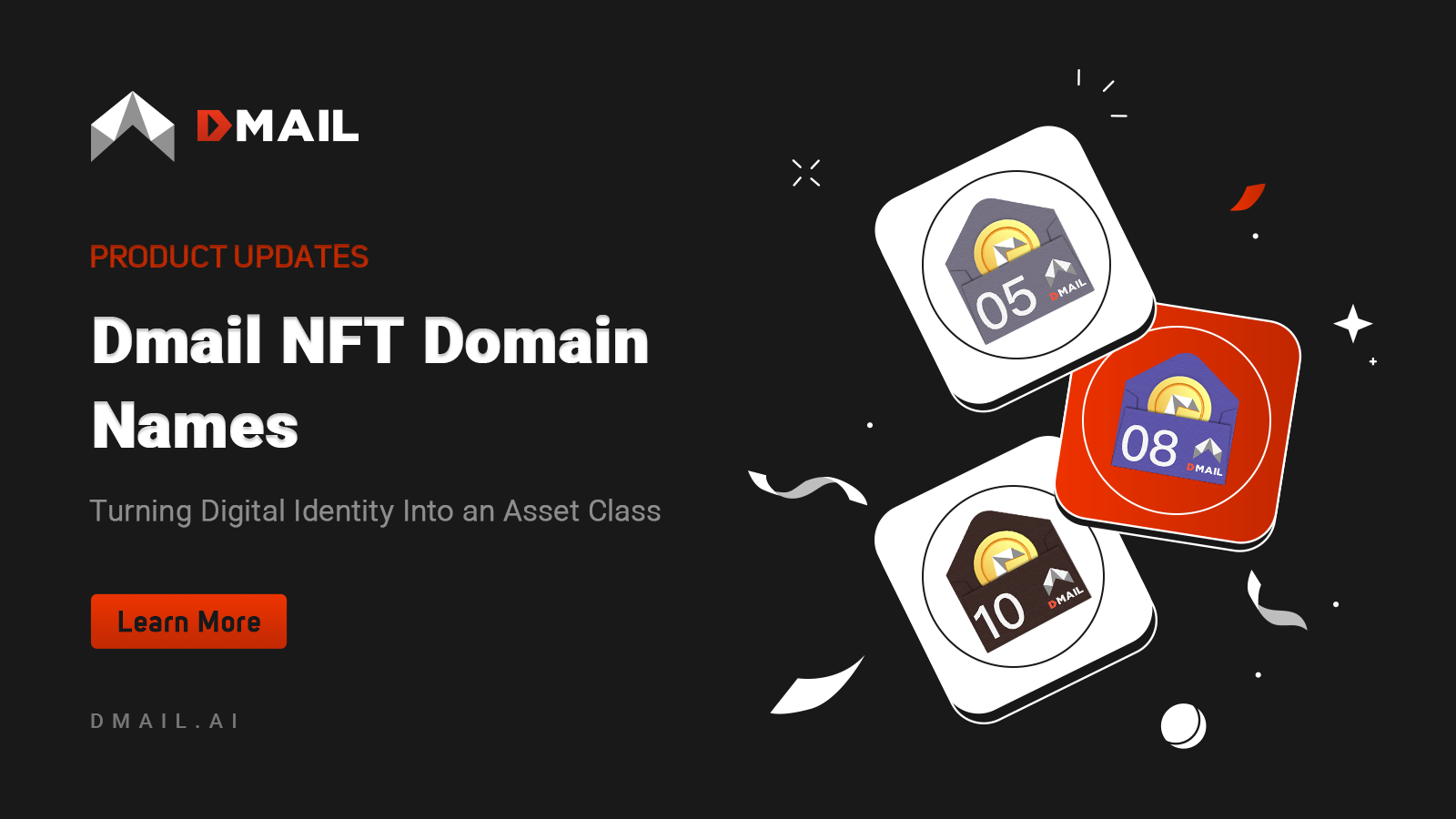NFT Domain Names: Turning Digital Identity Into an Asset Class
NFT Domain Names turn identity into infrastructure, connecting messaging, ownership, and reputation into one unified layer.

In Web2, you don’t own your name — you rent it. Your Gmail handle, your Twitter tag, your username on Discord — all leased from centralized platforms that can erase you overnight.
Dmail flips that script.
With NFT Domain Names, your digital identity becomes a verifiable, transferable, and monetizable asset that lives on-chain — not in a company database.
Your name. Your rules. Your wallet.
Owning the Handle That Owns You Back
A Dmail NFT Domain isn’t just a fancy username. It’s a tokenized credential representing both identity and function inside the Dmail ecosystem.
Each domain (for example, daniel.dmail) acts as:
- A secure inbox address tied directly to your wallet or DID.
- A public identifier recognized across Dmail’s partner ecosystem.
- A tradable NFT — meaning ownership can be sold, delegated, or transferred like any digital asset.
Think of it as the Web3 equivalent of owning your phone number, your email domain, and your trademark — rolled into one immutable, self-custodied record.
Why Centralized Identity Is a Dead End
Legacy email domains and usernames are centralized choke points.
Lose access to your account, and your entire professional and social network disappears.
You’re not the customer — you’re the inventory.
NFT domains decentralize identity at the root level:
- Censorship-proof: No corporation can suspend or reassign your name.
- Cross-platform: One domain serves as your unified identity across multiple chains and dApps.
- Revenue-generating: Valuable names appreciate and can be resold, leased, or whitelisted for access control.
Owning your digital domain is more than branding — it’s economic self-defense.
Identity Liquidity: Trading the Names That Matter
Domains have always had value — “crypto.com” sold for $12 million.
NFT domains make that market liquid and programmable.
A rare or brandable .dmail name can be held, auctioned, or collateralized.
Creators can issue subdomains for fans or holders, while companies can mint corporate namespaces (@brand.dmail) tied to verified wallets.
For the first time, identity has a market — and the market has rules you control.
A Foundation for the Web3 Address Book
Every Dmail user begins with a human-readable NFT domain that replaces random hexadecimal strings.
That means your messages, payments, and identity all point to the same anchor: your name.
When someone sends a message to alice.dmail, they’re not hitting a server — they’re connecting to a person, directly on-chain.
In the future, your Dmail NFT Domain will be compatible with ENS, .bnb, .sol, and other naming protocols — forming a global namespace for decentralized communication.
From Vanity to Verifiability
In Web3, owning your name isn’t vanity — it’s validation.
NFT Domain Names turn identity into infrastructure, connecting messaging, ownership, and reputation into one unified layer.
This isn’t just a username. It’s your proof of existence in the decentralized web — private, portable, and profitable.

Connect with Dmail: Website | Twitter | Discord | Github | Telegram


Comments ()